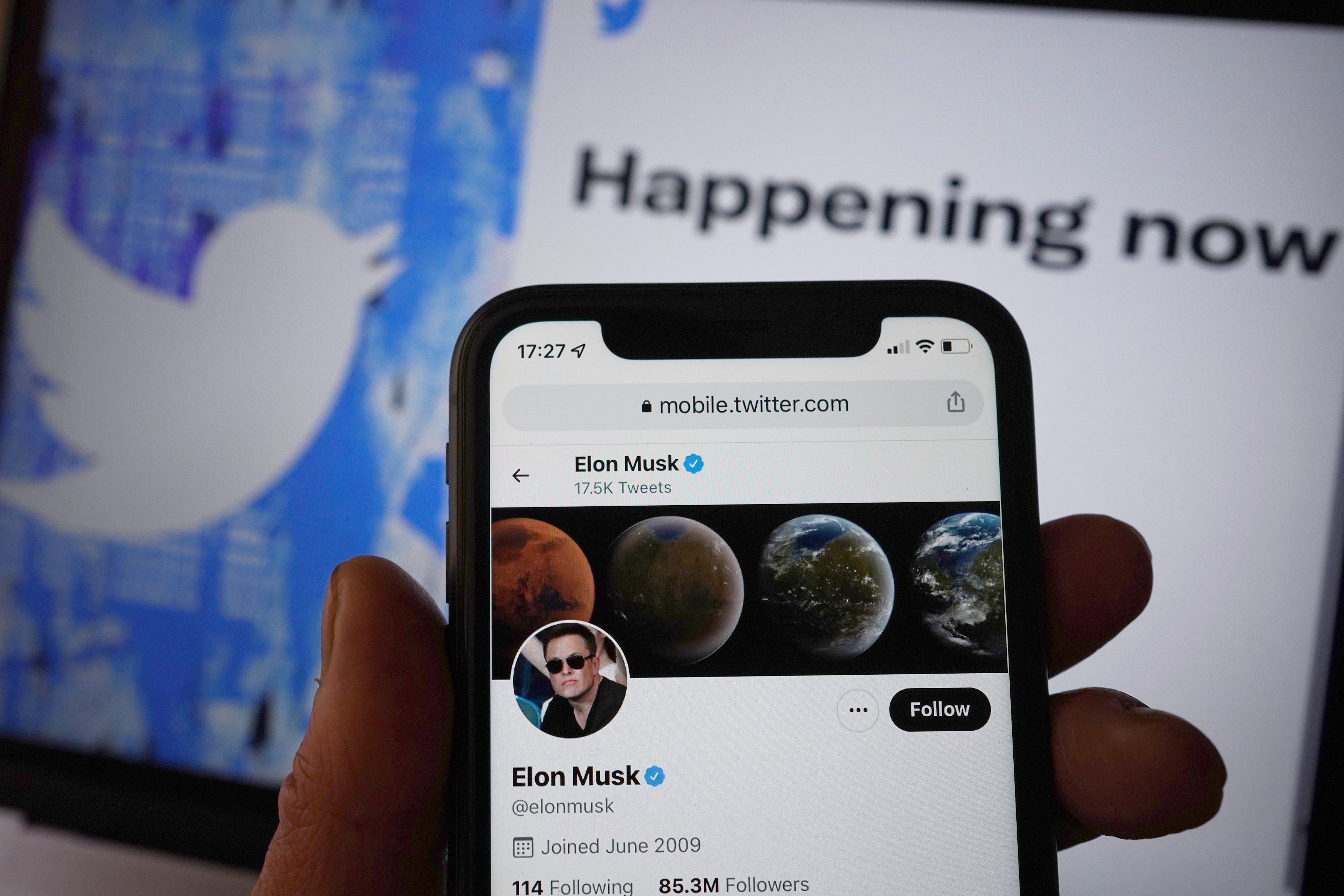Twitter is removing blue ticks – so who are the real ‘lords and peasants’ now?
If you want to promote your work or want your joke to go viral, you’re going to have to pay for it


Your support helps us to tell the story
From reproductive rights to climate change to Big Tech, The Independent is on the ground when the story is developing. Whether it's investigating the financials of Elon Musk's pro-Trump PAC or producing our latest documentary, 'The A Word', which shines a light on the American women fighting for reproductive rights, we know how important it is to parse out the facts from the messaging.
At such a critical moment in US history, we need reporters on the ground. Your donation allows us to keep sending journalists to speak to both sides of the story.
The Independent is trusted by Americans across the entire political spectrum. And unlike many other quality news outlets, we choose not to lock Americans out of our reporting and analysis with paywalls. We believe quality journalism should be available to everyone, paid for by those who can afford it.
Your support makes all the difference.It’s finally happening. On 1 April, Twitter will begin removing its “legacy” verification ticks.
It’s the most fundamental of all the visible changes in Elon Musk’s new “Twitter 2.0”, and rewires the grammar of the platform itself.
Organisations can apply for a new “gold” (it’s actually yellow) tick, while individuals must pay for a Twitter Blue subscription, costing £11 a month for a selection of new tools – longer (much longer) tweets, the ability to edit posts, higher weighting in the prioritisation algorithm, and one of those blue checks (which are actually white with a blue background).
The intention, according to Musk, was a new democratisation of Twitter. To him, the old blue tick was a “lords and peasants” system, an in-built class structure. Under the new plan, having a verified tick doesn’t make you special, it just means you’ve paid. As he said himself recently, “you get what you pay for”. It’s a stupid idea, and he’s wrong.
First of all, a quick disclosure: I used to work for Twitter, on the curation team. You can read about that here. I left last year to focus on my writing career, just before the Musk takeover. Partly because it felt like it was time to make the jump, and partly because I (correctly) assumed that the new regime wouldn’t value our work and I’d be fired anyway.
Another disclosure: as a journalist and author – entirely separate from my work at Twitter – I have a legacy blue check, and I was very proud when it was approved. I’m not going to pretend I didn’t occasionally enjoy the cachet that came with it – not because I felt it made me “special” or “better” – but because it was something I felt I’d earned. I had reached a professional standard as a writer that meant it was useful for people online to know that I was who I said I was.
That was the purpose of verification in the olden days, and though it could occasionally get muddy, the basic theory was sound. The blue check mark meant that people reading your stuff knew that you were who you said you were. It meant that you couldn’t be impersonated, but you could be held to account.
As things developed, verification gained a secondary value. It was never intentional, and in theory never played a role in who did and didn’t qualify, but it happened all the same. The verification tick started to be seen as a sign that you were “someone worth listening to”.
Twitter played into this, admittedly – you can filter searches to show only verified accounts, for example. People saw the check mark and thought “well this must be someone whose opinion is worth my time”.
That’s the thing that has annoyed Musk the most – that’s where his misguided “lords and peasants” analogy comes in.
A slightly confused rule that withdrew a person’s verified status as a punishment for breaking Twitter’s terms of service further muddied the waters. Invariably rulebreakers were people who held extreme opinons, leading to the largely unfounded impression of political and ideological bias.
The new system means anyone can verify their identity – at least, it does now. For a while there was a shambolic, predictable and utterly stupid system where anyone could verify any account. High jinx, quite naturally, ensued.
On the surface, the new system does feel more democratic, but it has two major problems.
In the past, if you saw a piece of news or an opinion by a verified journalist, you could assume that it had been arrived at with some journalistic rigour. It was the opinion of a professional. Of course, that professional could be biased, lying or simply incorrect, but the verification meant they could be held to account.
Under the new system, which will prioritise subscribed accounts in the algorithm, there is no accountability. There is nothing to indicate that an account is valuable, and we’ve trained ourselves to pay attention to the verified accounts. Twitter has long been a cesspit of fake news. This is going to make that problem a thousand times worse.
The second issue is more of an ideological one. Musk’s aim is to create a truly democratic global conversation, but unfortunately it’s now one that’s based on who can afford to pay for a subscription. The algorithm is not going to prioritise you because you’re popular, interesting or professional – it will prioritise you because you’ve paid it to do so.
If you want to promote your work, if you want your views to penetrate past your immediate followers, if you want your joke to go viral, you’re going to have to pay for it. That’s never been the case before.
Twitter was open to everyone, everywhere, and tweets from non-verified accounts could still travel far. The check mark itself was a sign of professionalism, expertise or at least identity. It wasn’t a sign that you could afford £11 a month during a cost of living crisis.
This takes a system based on identity and earned authority, and replaces it with one based on who can afford to pay the piper. That sounds a lot like “lords and peasants” to me.



Join our commenting forum
Join thought-provoking conversations, follow other Independent readers and see their replies
Comments